Convicted Whiskey Au Go Go killer denies confessing to police
EXCLUSIVE: One of the country’s worst living mass murderers — convicted of the 1973 firebombing of the Whiskey Au Go Go nightclub in Brisbane — has offered to take a lie-detector test in a bid to prove he never confessed to the horrific crime.
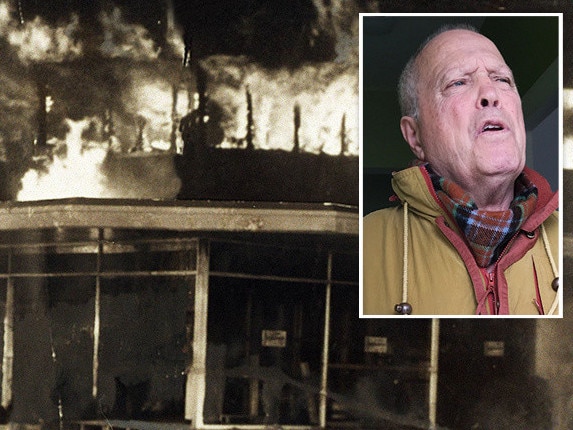
True Crime
Don't miss out on the headlines from True Crime. Followed categories will be added to My News.
EXCLUSIVE: One of the country’s worst living mass murderers — convicted of killing 15 people in the 1973 firebombing of the Whiskey Au Go Go nightclub in Brisbane — has offered to take a lie-detector test in a bid to prove he never confessed the horrific crime to police.
News Corp tracked down convicted murderer James Finch, 74, to a modest house in Essex, southeast of London, where he insisted he never confessed to Queensland Police that he started the fatal fire.
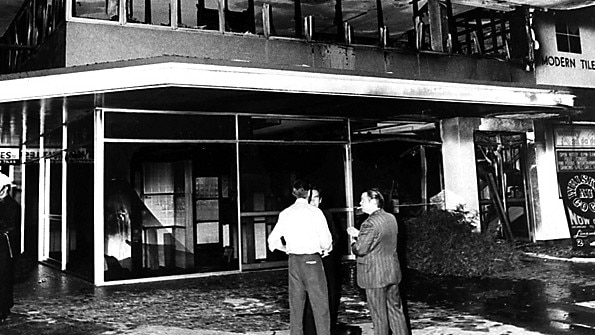
His remarks — his first in 30 years — could be crucial evidence in an upcoming inquest into the culprits behind the deadly fire and the ongoing rumours about additional parties that may have been responsible.
MORE: The simple life of James Finch
“There was no statement, I was never there, I was never in the room,” Finch said, instead blaming “corrupt cops’’ for the confession, which he never signed but which formed part of the evidence against him.
He also made a similar confession to Brisbane’s now defunct newspaper The Sun in 1988 — although retracted the confession some time later.
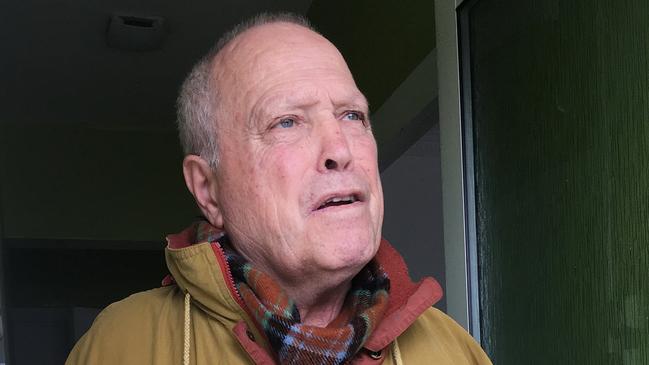
When asked directly if he was guilty of causing the horrific fire in 1973, Finch replied: “What did I plead? I pleaded not guilty, didn’t I?”
Queensland Attorney-General Yvette D’Ath last year opened an inquest into the deadly fire, to
address some of the concerns which continue to swirl 45 years after the event.
Fifteen people lost their lives after two drums of fuel were poured into the Fortitude Valley
nightclub’s foyer in the early hours of March 8, 1973, before being set alight.
A motive was never determined.
DECADES OF QUESTIONS
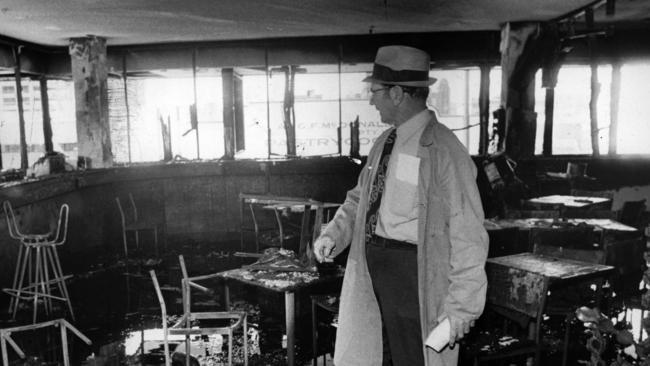
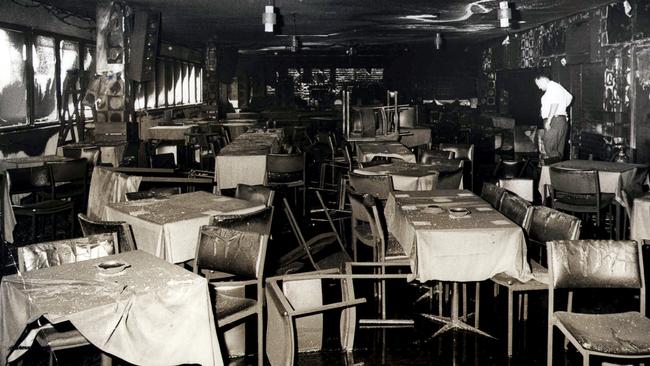
Finch and his associate, career criminal John Andrew Stuart, were both convicted of arson and
murder, but controversy has always surrounded the validity of Finch’s unsigned confession, and there has been concern for decades that police prematurely closed the inquiry.
Stuart died in jail in 1979 and the case had been closed.
The inquest was opened after two men, Garry Dubois and Vincent O’Dempsey, were last year
convicted of the 1974 cold-case murder of Barbara McCulkin and her two young daughters.
Mrs McCulkin had been the wife of Brisbane criminal Bill McCulkin.
O’Dempsey’s trial was told he’d killed Ms McCulkin because she could have implicated him in the fire, a claim O’Dempsey had denied.
And in 1988, Finch had claimed in Brisbane’s The Sun that McCulkin had a hand in the Whiskey Au Go Go fire, along with O’Dempsey.
Finch distanced himself from the article last week, telling News Corp he had never seen it, despite it also containing an apparent confession from him as to his own involvement. He also insisted he never disclosed those suspects.
Asked whether he ever spoke about O’Dempsey, Finch said “I wouldn’t know what he looked like.”
“Someone said to me once, Vince was in the prison but I’ve never seen the bloke, I never spoke to the bloke, I have no idea,” he said.
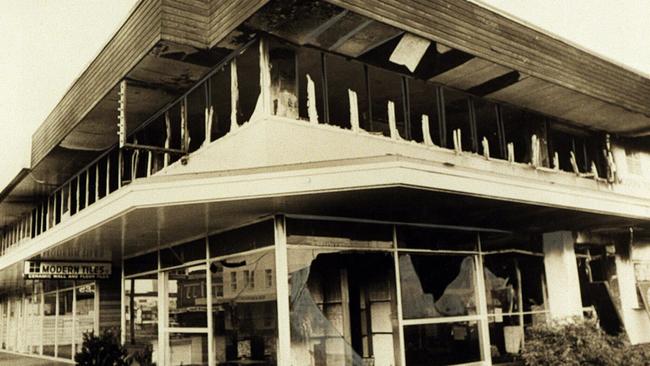
ONCE AUSTRALIA’S WORST MASS KILLING
Finch served 15 years in jail for the nightclub fire and was later deported to the UK, his country of birth, after what was at the time Australia’s worst mass killing, eclipsed only by the Port Arthur massacre in 1996.
After serving his time in Brisbane’s infamous Boggo Road jail, he was deported back to the UK in 1988, and told News Corp he was now mentally ill, but “happy’’, keeping fit, and “had a good memory’’.
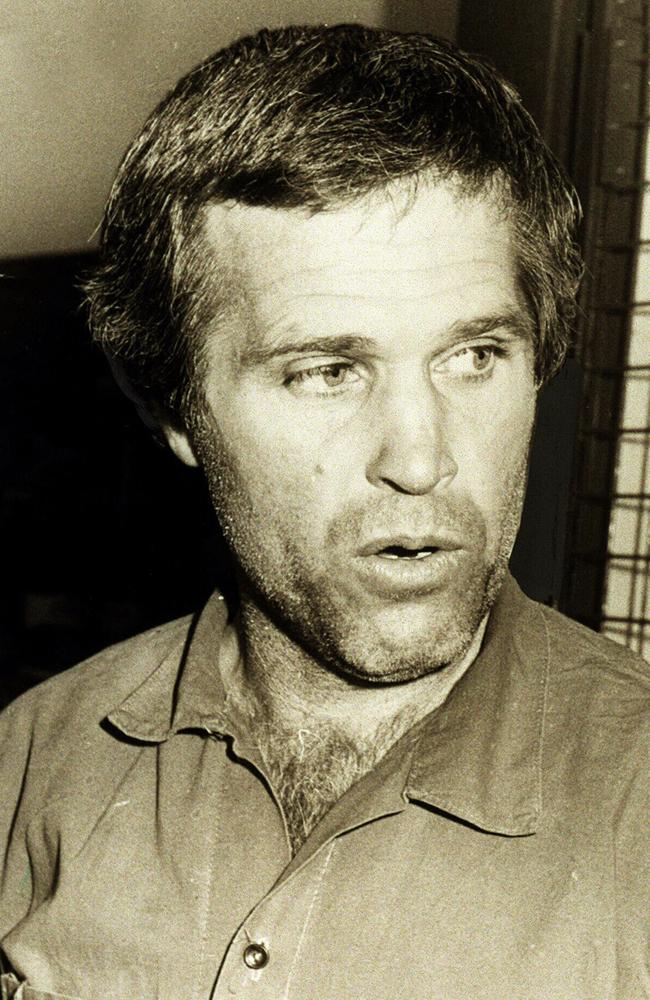
He said he would take a lie-detector test to prove he was never in the room with police “when they done (sic) their confession”.
News Corp revealed earlier this month that ex-cop and convicted killer Roger Rogerson, who took part in the fire’s initial investigation, had been interviewed by two Queensland detectives as part of the new inquest.
The notoriously corrupt Rogerson, who was a central figure in Sydney’s underworld during the 1980s, is currently serving a life sentence for the 2014 murder of drug dealer Jamie Gao.
He was one of six officers who arrested and interrogated both Finch and Stuart following the 1973 blaze.
News Corp also revealed this month that unseen police files suggested Rogerson admitted to forging the confession.
Rogerson insisted there’s nothing more to tell and that a new inquest was useless.
“Of course he (Rogerson) would say that,” Finch said.
When News Corp told Finch that Rogerson was in jail, he said it’d made his day.
“I don’t like seeing people go to prison but Rogerson … all I’ve got to say is, that’s made my day,” he said.
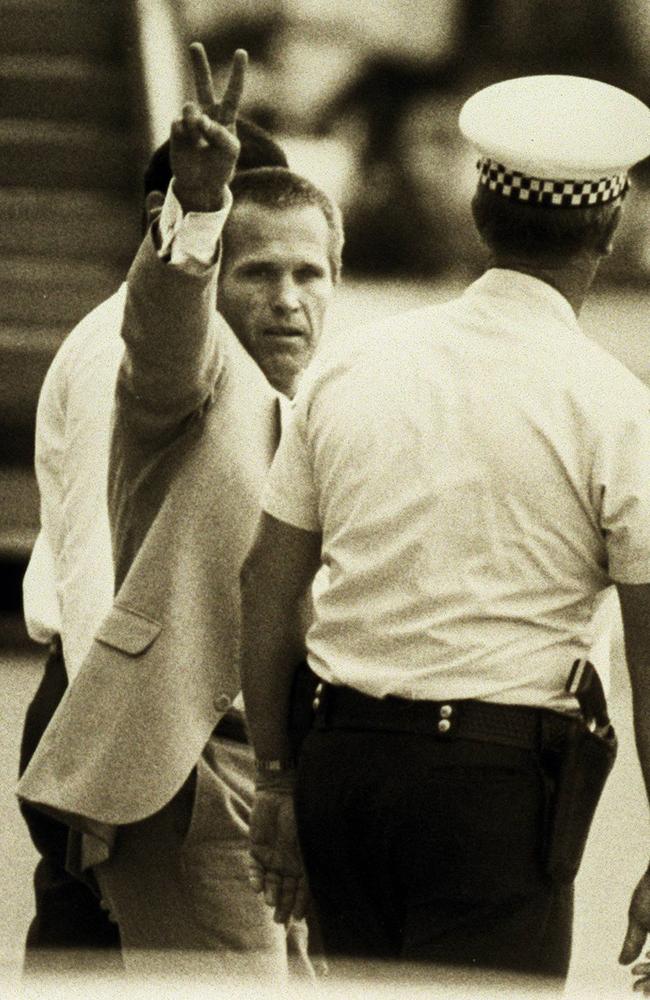
“He was a low scumbag.
“All of them coppers who fabricated — six of them against me, when they verballed me.
“I was convicted on a record of interview.
“I’m willing to still take a lie-detector test to say I never made that confession in the room.”
Finch also claimed Ron Redmond, who was then acting police commissioner, had “done the verbal” — meaning falsely claimed he’d confessed.
He claimed Mr Redmond, who has since died, had typed up his confession.
“He was a slimy so-and-so,” Finch said.
The criminal, who slammed Queensland “coppers” for being corrupt at the time of the firebombing, queried why a new inquest had been ordered.
“They’re (authorities) only too willing to take the jury’s verdict,” he said.
“I don’t know how bad they are now (police).”
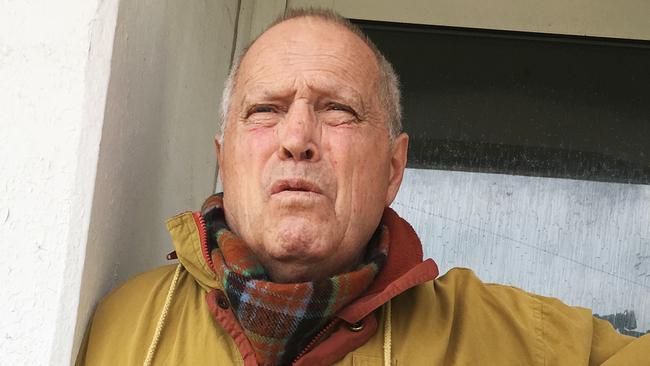
‘THIS IS MY HOME NOW’
Finch claimed he hadn’t been “in any trouble” since being released from prison and that he hadn’t spoken to anyone in Australia for a “long, long time”.
“My life is OK now, I get well looked after here,” he said.
“This is my home now.”
A date for the inquest has not been set.
Queensland Police declined to comment and referred inquiries to the Attorney-General’s
department.
A spokesperson for the Attorney-General’s office said the police homicide investigation unit was continuing to gather evidence on behalf of the state coroner, and so it would be inappropriate to comment on Finch’s claims.
They also said that because the case was being held under the Coroner’s Act 1958 and not the new Coroner’s Act 2003, a person could not be compelled to answer any questions that may incriminate them.
TIMELINE OF WHISKEY AU GO GO BLAZE
Prior to the Whiskey Au Go Go blaze, Englishman James Finch had served 14 years in a NSW jail for the attempted murder of a Sydney hitman.
Finch and Stuart reportedly met while in jail.
February 26, 1973: Finch arrives in Australia after Stuart paid for his airfare from England.
March 8, 1973: The Whiskey Au Go Go nightclub in Fortitude Valley went up in flames after fuel was poured into the foyer and set alight. 15 people lost their lives with most suffocating from the inferno. About 100 patrons, bar staff and entertainers had been in the club but many escaped. The blaze came amid a turf war between gangs who wanted to control the valley’s illegal gambling and prostitution dens. The coronial inquest lasted less than two days.
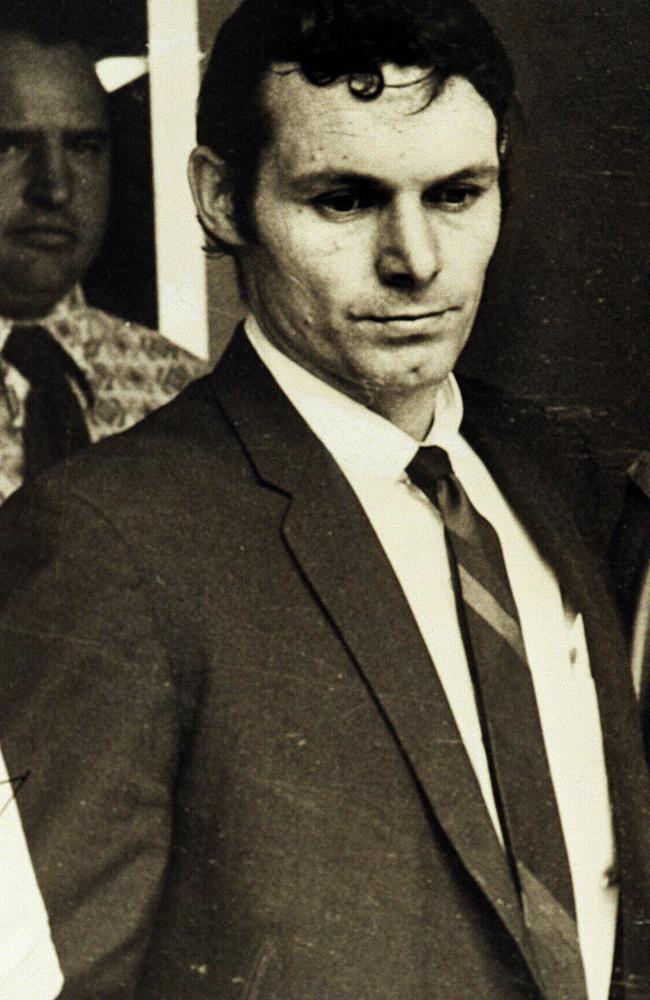
March 10, 1973: Finch and Stuart are charged with the arson and murder after a tip off from Stuart’s brother. Finch to this day maintains that he was never in the room at the time of his confession and that police “verballed” him. The pair were interrogated by police, including now corrupt cop Roger Rogerson. Finch’s confession was typed and unsigned.
September 10, 1973: Whiskey Au Go Go trial starts. Stuart claims he’d been approached by a crime syndicate from Sydney who asked him to extort money from Brisbane nightclubs. Stuart reportedly warned police of a potential fire. Police allege it was Finch who lit the fire and Stuart who instigated it. The pair maintained their innocence. They both swallowed pieces of wire and staged hunger strikes to garner sympathy. Stuart also sewed his lips together while Finch chopped off the tip of his pinky.
October 23, 1973: The pair were found guilty and initially sentenced to death. This was later changed to life in prison which they served at Boggo Road Gaol.
January 16, 1974: Barbara McCulkin and her two daughters Vicki and Leanne are murdered by Vincent O’Dempsey and Garry Dubois. Their trial later heard that Mrs McCulkin may have had information about the fire.
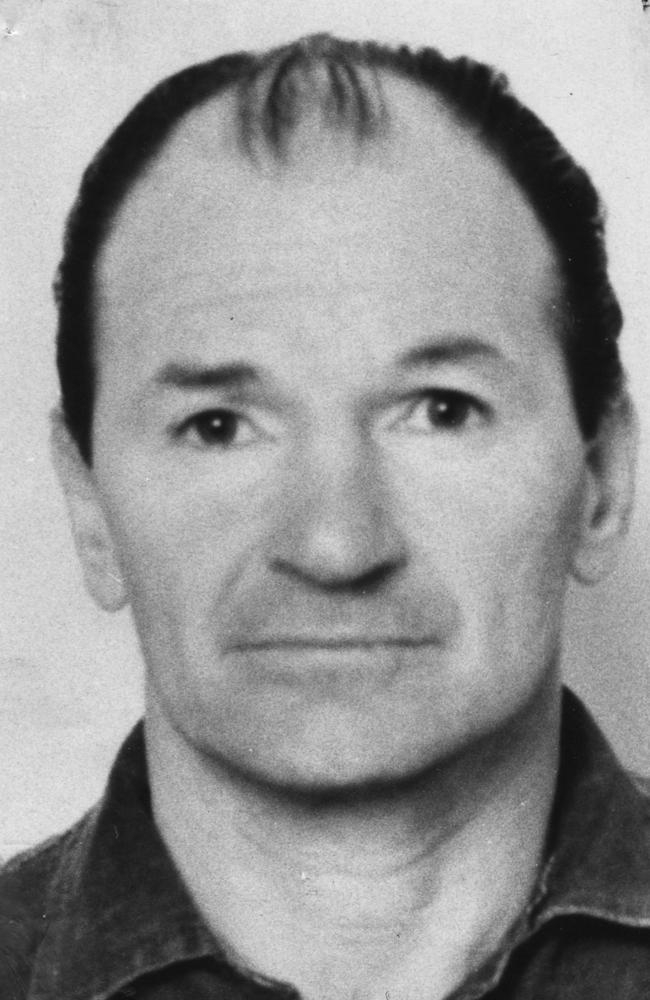
January 1, 1979: Stuart found dead in his cell. He’d continued to swallow wire while in prison and went on a hunger strike.
February 19, 1986: Finch marries wheelchair-bound and terminally ill woman, Cheryl Cole in prison after a three-year romance.
February 1, 1988: Finch released on bail after serving 14 years and nine months. He has to return to England. He later gives an interview to The Sun where he confessed and said there were others who had a hand in the crime, including Barbara McCulkin’s husband Bill and O’Dempsey. He later retracted his confession.
1991: Finch and Cole divorce. A decade later, Cole dies of a muscular wasting disease.
September 2, 2016: Rogerson is sentenced to life in jail for murdering Jamie Gao over a drug deal in 2014. He had pleaded not guilty.
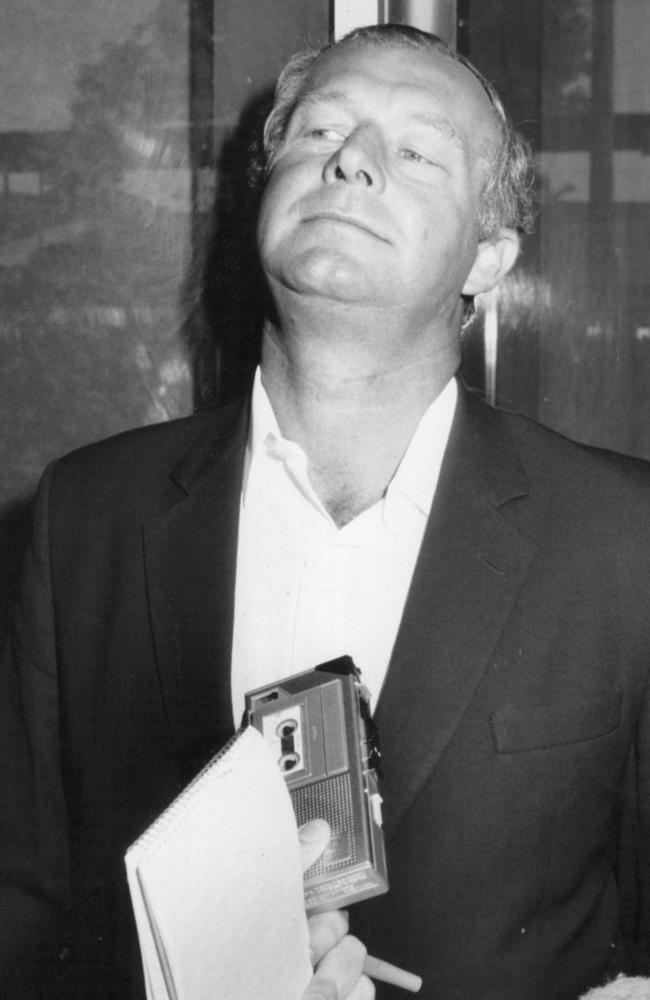
June 1, 2017: O’Dempsey and Dubois were sentenced to prison for the murder of Mrs McCulkin. Justice Peter Applegarth said there was new evidence which implicated O’Dempsey in the fire.
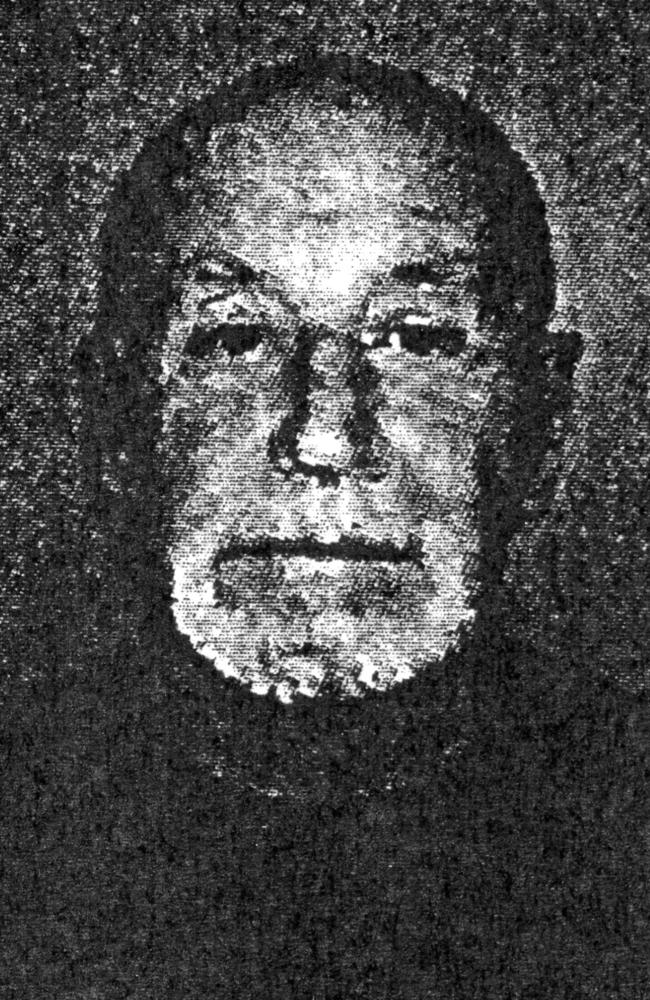
June 2, 2017: Queensland Attorney-General Yvette D’Ath announces the coronial inquest into the fire will be reopened after News Corp demanded a proper investigation.
September 1, 2018: Rogerson is interviewed by detectives at Silverwater Jail as part of the fire inquiry. He has previously denied any wrongdoing.
September 2018: News Corp reveal that unseen police files have suggested Rogerson admitted to fabricating the Whiskey Au Go Go confession.
No date has been set for the inquest.
Originally published as Convicted Whiskey Au Go Go killer denies confessing to police
